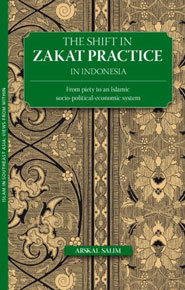The Shift in Zakat Practice in Indonesia: from piety to an Islamic socio-political-economic system

AutorIn
Arskal Salim
Verlag
Chiang Mai: Silkworm Books
Jahr der Veröffentlichung
2008
ISBN
978-9-7495-1108-4
OPAC
Abstract
Zakat, one of Islam’s Five Pillars, is the practice of giving a fixed proportion of one’s financial assets to those in need, thereby purifying both one’s soul and one’s remaining wealth. In Indonesia, since the coming of Islam, zakat has been a means of worship, and its collection has been voluntary and decentralized. Arskal Salim argues that in the post-New Order regime zakat practice changed structurally and institutionally through the enactment of a law on zakat management, followed by the establishment of a national zakat agency. A cultural shift is now in progress with two possible outcomes: either zakat collection will become compulsory and centralized or it will become such an intricate part of taxation law that it loses its spiritual relevance.
